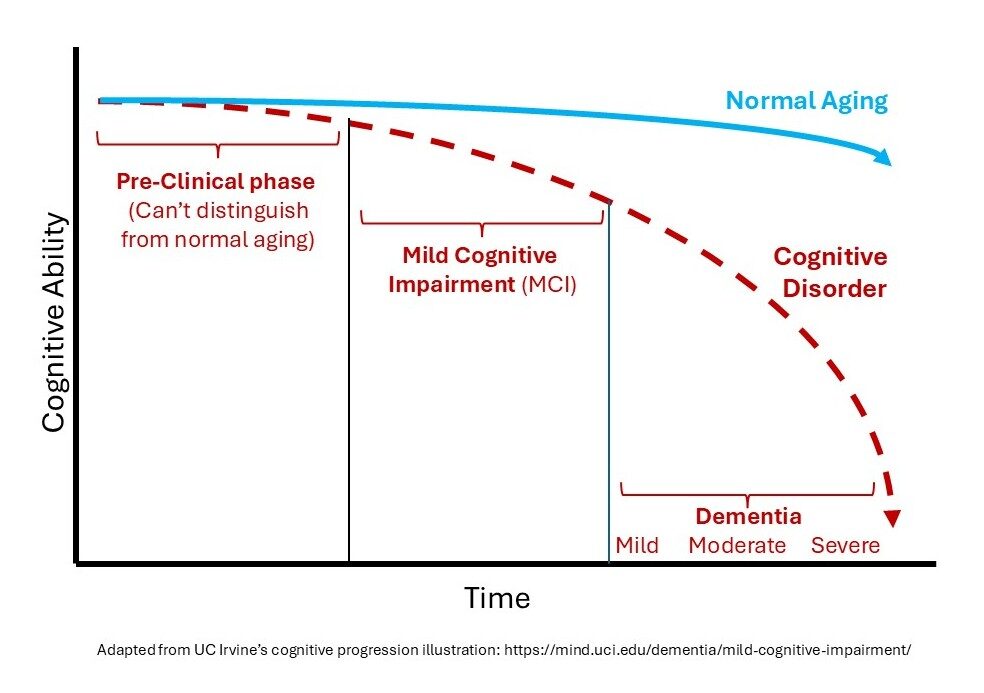If you or someone you know is having a hard time remembering things, it’s not necessarily cause for concern. As we age, our bodies change, affecting our abilities in many ways. And because our brains are part of our bodies, getting older also means that our cognitive abilities change.3
Even in “normal” aging, this means our ability to learn and recall information diminishes over time. So it’s completely normal for someone to occasionally forget where they put their car keys, struggle to find the right word during a conversation, or forget someone’s name. These tiny details just weren’t important enough for their brain to remember or to recall quickly.4
When memory loss isn’t normal
However, in “abnormal” aging caused by a cognitive disorder, the changes become more severe. Someone may not know what car keys are, forget recent conversations, or not recognize someone they know very well.5
Early diagnosis of a cognitive disorder is very difficult because the early stages of the disease look just like normal aging.

It’s not until the disease progresses that the symptoms of a cognitive disorder become distinct from normal aging. This phase, often called “Mild Cognitive Impairment” or “MCI,” is also when symptoms become pronounced enough that others may notice them.6
Memory loss is just one symptom.
Memory loss isn’t the only sign of a possible cognitive disorder. Other symptoms include loss of focus or organization, inability to solve problems, hallucinations, slow or uncoordinated physical movements, inappropriate behavior, and changes to someone’s personality – that get worse over time.7
If you’re concerned about any of these symptoms in yourself or someone you know, it’s important to remember that cognitive disorders can’t be self-diagnosed. The brain is an extremely complex part of our body, so figuring out if there are problems with it requires a trained physician.